In twenty years, will fuel cell vehicles still be relevant? According to a UK-based analyst IDTech, the market share of hydrogen fuel cell vehicles in passenger automobiles will only be approximately 4% by 2044.
According to the same analyst’s findings, H2 engines will power an overwhelmingly higher percentage of zero-emission trucks.
In actuality, the analyst projected that although hydrogen fuel cell vehicles would represent a “very small portion” of the automotive market, one-fifth of zero-emission trucks would be powered by hydrogen. This data was found in the Fuel Cell Electric Vehicles 2024-2044: Markets, Technologies, and Forecasts document.
Furthermore, the study indicated that, beyond the significant effects on the trucking industry, a variety of other, relatively smaller markets, such as public transportation buses and light-duty commercial vehicles, like delivery vans, are expected to progressively embrace hydrogen as the principal fuel source for automobiles.
The study examined current global developments in the markets for hydrogen fuel cell vehicles
According to the data, sales of zero-emission cars in 2022 were down from 2021, with FCEVs accounting for just 0.2% of total sales. “FCEV cars have not progressed nearly as much as BEVs, despite the advantages of long-range and quick refueling.”

The study continued by listing some of the main obstacles that contributed to this downward trend in fuel cell vehicle sales. This tension has been mostly caused by the high cost of hydrogen, the lack of infrastructure for hydrogen recharging, and the high initial cost of the cars. Significant government and OEM subsidies, which significantly reduce the car’s initial cost and, in certain situations, temporarily cover fuel costs, have contributed to its success thus far.
Incentives as examples
In order to increase sales, Hyundai offered the $60,000 H2 powered Nexo in South Korea for half price.
In a similar vein, Toyota was luring people to purchase its hydrogen-powered Mirai and becoming an early adopter of the technology by selling its $50,000 fuel cell cars for less than $18,000 in California. Free gasoline for 96560.64 kilometers was also included in the transaction.
According to the analysis, the additional fuel incentive was significant because, in California, operating an electric vehicle was significantly less expensive than fueling one with hydrogen. In California, a Tesla Model 3 would cost $0.04 per mile to operate, whereas a Toyota Mirai would cost $0.21 per mile, according to IDTechEx.
The author of the report said that “a growing running cost makes an FC (fuel-cell) car a hard sell for consumers, given the greater upfront cost for FCEVs over both combustion engine vehicles and BEVs.”
The report also said that there were no noteworthy networks for refueling hydrogen fuel cell cars as of 2023. It acknowledged that the number of gas stations was expanding at a significant rate in the places where they were present, but it was scarcely a rate that would be useful to the average driver.
According to the research “an additional significant issue is the scarcity of hydrogen filling stations; as of June 2023, there were about 1,100 stations worldwide”. Additionally mentioned that “Despite the fact that this is more than twice as much as it was in 2019, consumers still cannot feel comfortable refueling”.
With governments investing in the development of a hydrogen economy and hydrogen becoming more widely available. The analyst stated “IDTechEx does expect FCEV car sales to grow in the long term, but FCEVs will remain a very small portion of the zero-emission passenger car market”.
Based on: Hydrogen Fuel News

UH2 is a leading hydrogen solutions company that is constantly researching and developing innovative ways for hydrogen production, storage and distribution. We are committed to promote decarbonization and boost the energy transition.
Find out more about hydrogen here.
